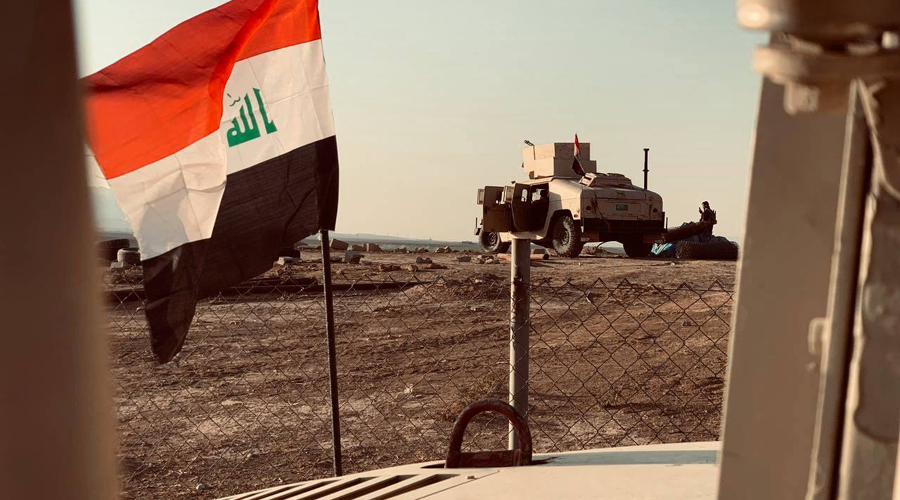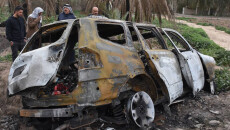Two separate attacks that took place last night, May 13, were attributed to ISIS militants and in which heavy weapons were used, resulting in the death of an officer and four soldiers and the wounding of five soldiers.
The first attack targeted an Iraqi army headquarters in the village of Al-Subaiyat, near Al-Oudhaim district, between the provinces of Salah al-Din and Diyala, and left ten dead and wounded among the ranks of the army.
As for the second attack, which targeted the Popular Mobilization Forces PMF (Hashid Shabi) in the Mutaybija area in Salah al-Din, there is no official toll yet available on the number of casualties in attack.
The Iraqi Ministry of Defense deployed more forces in the plain areas located between Salah al-Din and Diyala provinces, with the aim of controlling the unstable conditions that the region has witnessed since last night.
An intelligence source in the region, told (KirkukNow) on the condition of anonymity today, Tuesday, May 14, that, “Daesh (ISIS) militants attacked the army and Popular Mobilization Forces in one night, targeting fighters of the Second Regiment, 93rd Infantry Brigade in the army, and an officer (Col. Khaled Naji) and four soldiers were killed, and the losses of the attack that targeted the Popular Mobilization Forces are not yet clear, but they indicated that there were injuries.”
Last night, the Iraqi Ministry of Defense confirmed the death of the officer and the four soldiers, stressing in a statement that they "were martyred while repelling a terrorist attack on a military point east of Saladin Province."
Although the Iraqi government announced the elimination of ISIS in Iraq in late 2017, security has not been completely restored in the rural areas of the disputed territories, as they witness from time to time attacks targeting the army, the Popular Mobilization Forces, and other security forces.
Up to 2022, the attacks targeting the Iraqi army and police by roadside bombs has remarkably increased in those areas, pushing the Iraqi government to review its measures.
Since the end of IS in Iraq, due to its geographical location, those areas have always been a safe haven for Sleeper cells and resistant pockets of IS who were regrouping in the rural areas of the disputed territories between Baghdad and Erbil where neither the Iraqi Security Forces ISF nor those of the semi-autonomous Iraqi Kurdistan Region IKR are deployed.
They were posing a high threat by different tactics such as hit-and-run attacks, kidnappings, snipers, IED and roadside bombs targeting the Iraqi forces and civilians.
"The confrontations between the militants and the Iraqi army forces continued for more than an hour, and the terrorists used heavy and medium weapons, and a number of military vehicles were destroyed," the source explained.
“The terrorists used heavy and medium weapons and a number of military vehicles were destroyed.”
Following the incident and until this morning, May 14, a state of emergency was declared in the area because “the situation is unstable” the source added. "Additional forces were deployed for fear of further attacks."
These attacks come after a period of security stability witnessed in the areas between Kirkuk, Diyala and Salah al-Din.
IS took large swathes of land in Iraq and Syria in 2014. Following a series of bloody offensives against it, the armed group lost its territorial control in Iraq and Syria and was effectively defeated in 2017, the Iraqi government declared.
However, having changed its strategies, IS still poses a threat in several provinces in Iraq, particularly the disputed territories which ranges from Khanaqin northeast of Baghdad on the border with Iran across the northern oil-rich city of Kirkuk up to Shingal (Sinjar) district of Ninewa province at the west on the borders with Syria.
Meanwhile, the territorial disputes between Baghdad and Erbil, coupled with a lack of coordination between Kurdish and Iraqi forces, have contributed to a security vacuum that has been increasingly exploited by IS sleeper cells.






